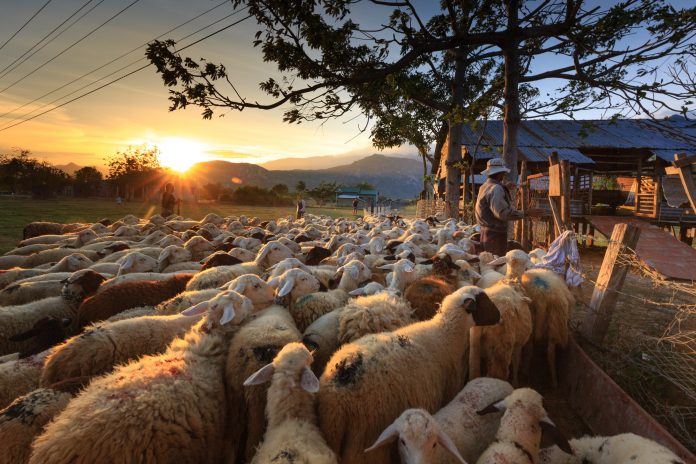Livestock farming and the associated animal welfare issues have been a hot-topic conversation amongst farmers, homesteaders, and those living off the grid for decades.
With increased regulations on how to treat animals coming into effect globally, understanding these trends are critical in order to successfully keep livestock while adhering to specific guidelines.
With this article, we will break down the top 6 important points surrounding modern livestock farming standards as well as tips on how farmers can adjust their practices to stay up-to-date on any new developments or laws being passed. If you plan on raising cattle on your farm, there is different types of cattle equipment you may need to invest in to be able to raise healthy and high-quality animals.
Keeping your animals healthy and happy should always be your main focus–let’s dive right into what you need to know about current trends in this field!
An Overview of Animal Welfare Regulations and Standards
Animal welfare regulations and standards aim to improve the off-grid homestead’s ability to maintain a sustainable environment for animals.
By providing guidelines for animal treatment, nutrition, housing, and transport, these regulations ensure that basic needs are met and that off-grid homesteaders can provide premium care.
In addition, safety criteria are often included when applicable to minimize potential risks for animals and humans living off the grid. For example, off-grid animal housing must be sheltered from inclement weather, and need adequate ventilation and protection from predators.
Finally, off-grid homesteaders must ensure that all animal products adhering to standards such as slaughter quality or sourcing materials like fur are handled properly.
Sound animal welfare regulations take into consideration the off-grid homesteader’s need to responsibly maintain their property while also ensuring their livestock is healthy and comfortable.
The Role of Genetics in Livestock Production
Genetics plays a pivotal role in off-grid living and homesteading, as such knowledge is essential for successful livestock production.
Those who are investing in off-the-grid projects or own homesteads must take into account the genetics of their animals to ensure long-lasting results. As a result, understanding not just the physical but also the physiological traits of animals is incredibly important for efficient and productive off-grid living.
Every breed has unique attributes that can be leveraged to optimize livestock health and lifespans. Proper breed selection is even more valuable in off-grid areas where supplies and veterinarian access might be limited.
The knowledge about animal genetics helps off-the-gridders make better choices in terms of properly planning feed sources, housing specifics, and expected timelines for breeding outcomes.
Advances in Feed Formulation and Nutrition for Livestock
Advances in feed formulation and nutrition for livestock have increased off-grid living sustainability. Livestock owners, who are off-grid, are now able to make use of more optimized diets that allow them to raise healthier and more productive animals.
With new options such as nutritionally balanced feed and tailored additives, off-grid farmers are finding it easier to produce healthier, more sustainable sources of food for their families and communities.
Participants in off-grid living no longer need to depend on wild-caught sources when better stocking methods can be implemented with the latest advances in feed formulation and nutrition.
Defining Sustainability in Livestock Agriculture
Sustainability in livestock agriculture is a multifaceted concept concerned with both long-term economic viability and protecting the environment and the animals within it.
This involves practices such as managing resources for resilience, considering animal health and welfare, controlling air, water, and land pollution, preventing soil degradation, and promoting the wise use of antibiotics.
To be sustainable means to make sure that the livestock enterprises are economically profitable while also being ecologically responsible—by minimizing environmental damage while ensuring the ethical treatment of animals.
This allows farmers to harvest resources responsibly while maintaining an assurance of sustainability – both now and into the future.
Innovations in Technologies for Livestock Care and Management
The advancements in off-grid living and homesteading practices are leading to exciting innovations in technologies for livestock care and management.
This has enabled farmers to access automated devices that can automate milking, feeding, and watering, as well as optimize barn conditions. If you need a new barn or shed in your farm or property, you may consider starting an Amish Pole Barn Construction project or purchase one of those sheds for sale.
Today, off-grid methods can be used to build efficient, smart farming systems that improve the lives of animals while offering better yields with lower inputs. This can save farmers both time and money while allowing them to raise healthier animals ethically.
It is clear that the combination of off-grid living and smart technology is transforming how we take care of our livestock, making animal husbandry more environmentally friendly and sustainable.
The Growing Need for Animal Welfare Education and Collaboration
With increasing education and collaboration among stakeholders in animal welfare, sustainable practices have become more accessible than ever.
As awareness of the veterinary industry continues to grow, the need for sustainable measures that protect animal safety and welfare is becoming more important.
By working together with educational institutions and organizations, conservation groups, pet owners, and governments, sustainable practices can be promoted to ensure better animal welfare outcomes.
Such collaboration across multiple parties allows for a multi-faceted approach that can help bridge the gap between research and the implementation of sustainable practices. Most importantly, such initiatives create tangible results that benefit both animals and society as a whole.
Animal welfare regulations and standards are vital for ensuring a safe and healthy environment for livestock. Consideration must be taken into account to increase genetic improvement and progress in feed formulation, nutrition, and sustainability of livestock agriculture.
Technologies have evolved to help make animal care and management more efficient, but there is still the need for greater collaboration among animal care professionals, scientists, policymakers, educators, and farmers when it comes to improving animal welfare conditions.
As more people become aware of the business opportunities related to animal welfare education and training as well as new ways of providing ethical animal care and production methods, we can work together to achieve a positive future for our livestock that is both humane and sustainable.














